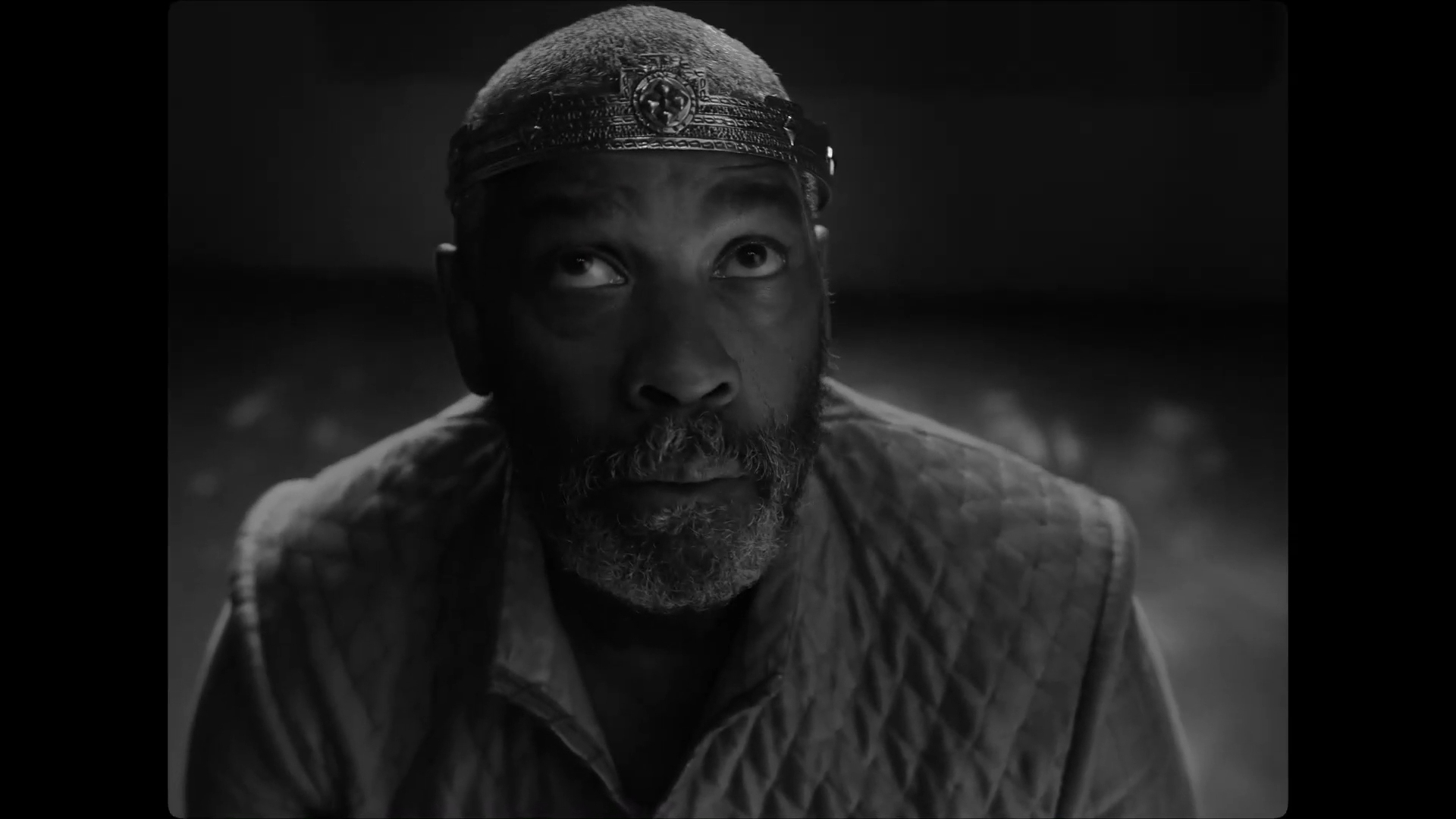
Adaptations of the works of William Shakespeare feel almost as old as the Bard of Avon himself at this point. Many a filmmaker has tried their hand at providing their own twist to his timeless stories and Joel Coen, one half of the legendary film director sibling duo the Coen brothers, goes it alone without his brother Ethan by his side and provides his take on the classic story of Macbeth. It’s one that you’re surely familiar with by now familiar with after its countless adaptations throughout the years. A warrior, this time played stunningly by Denzel Washington, is told by three witches (Kathryn Hunter) that he will be named Thane Of Cawdor by King Duncan (Brendan Gleeson) and eventually be crowned King. When the witches’ prophecy becomes true, he and his ambitious wife Lady Macbeth (Frances McDormand) being to manipulate the throne in order to bring the full prophecy to pass.
Theatre to big screen adaptations can be a tricky feat to pull off, particularly when a director makes the creative decision to stick with the classic, early modern English verbiage of Shakespeare’s prose as Coen has here. Despite the usage of the dense, true to the source language for its characters and the exquisite production design that evokes both the stage and movie sets simultaneously while also nodding to its shadowy, Expressionistic predecessors like Laurence Olivier’s Hamlet and Orson Welles’ own version of this story, The Tragedy of Macbeth is distinctly cinematic in its photography, creating the most gorgeously shot film of the year. Coen and director of photography Bruno Delbonnel utilize a sharp black and white color palette with gorgeous framing and the extensive use of shadow and fog to create a film with hypnotizing visuals that are impossible to look away from and accentuate the horror of the story being told. The fog feels like a nod to Akira Kurosawa’s Macbeth adaptation Throne of Blood and creates a sense of foreboding that is also a metaphor for the shadowy machinations at the heart of the story. The appearance of the three witches is filmed masterfully with it first appearing as one witch and her reflections in a large pool of water making the one appear as three before fully manifesting into three separate entities after a plume of fog appears. Kathryn Hunter uses her background as a contortionist to impart the character with a chilling mysteriousness and horror element in how she contorts her body when she appears onscreen, appearing human and inhuman all at once.

The Tragedy of MacBeth leans into its horror elements not just with the Expressionist production design mentioned before and its ominous shadows, but also its depiction of how guilt wracks Macbeth after his play for the throne is successful and his worry about his fate. The emphasis placed on Macbeth’s state of mind leading toward paranoia and madness makes this a bit of a psychological thriller in a way that no other adaptation has been. Two scenes in particular stand out, one being Macbeth’s famous paranoid display during a dinner banquet and his second consultation with the witches which gorgeously shot using extensive shadowing and visual effects. The extent of Macbeth’s mental decline feels more extensive and raw here than has ever been filmed before and shot just as horrifyingly.
Of course, the full scope of the protagonists descent cannot truly be felt without a magnificent actor portraying his rise and fall and Washington gives one of the best performances of his career in the titular role. He of course first began to cement his reputation on stage as an actor and The Tragedy of Macbeth provides Washington with the opportunity to show those who know him as a movie star why he’s regarded as perhaps the best actor of his generation. He brings the appropriate amount of gravitas to the role in his recitation of Shakespeare’s prose and again is convincing and impactful in his display of an ambitious man crumbling psychologically under the weight of it all. McDormand is equally skillful in her portrayal of the conniving Lady Macbeth, steely in her resolve, sneaky in her planning, and contrasting off Washington’s paranoia perfectly as a consigliere trying to keep her love on the path toward power. Corey Hawkins’ take on Macduff in this adaptation makes his final clash with Macbeth all the more important as Hawkins portrays the painful reveal of the origin of his destiny as the Mad King’s killer powerfully.
The Tragedy of Macbeth is a stunning work of art that perfectly melds movies and the theatre; a worthy adaptation of Shakespeare and in this writer’s opinion, the second best ever filmed just behind Kurosawa’s Throne of Blood. The film may lean slightly toward being more for purists due to its dense Shakespearean dialogue that may be hard to follow for more casual viewers, but its stunning visuals and the power house performances of acting titans Denzel Washington and Frances McDormand, along with the rest of the ensemble, could help assist with digesting that. It’s those visuals that help it truly set itself apart from its roots in the theater, with some flat out gorgeous lighting, transitions, and framing that make the film pure eye candy. Film is art and this one is a fierce reminder of that fact.
Images: A24

